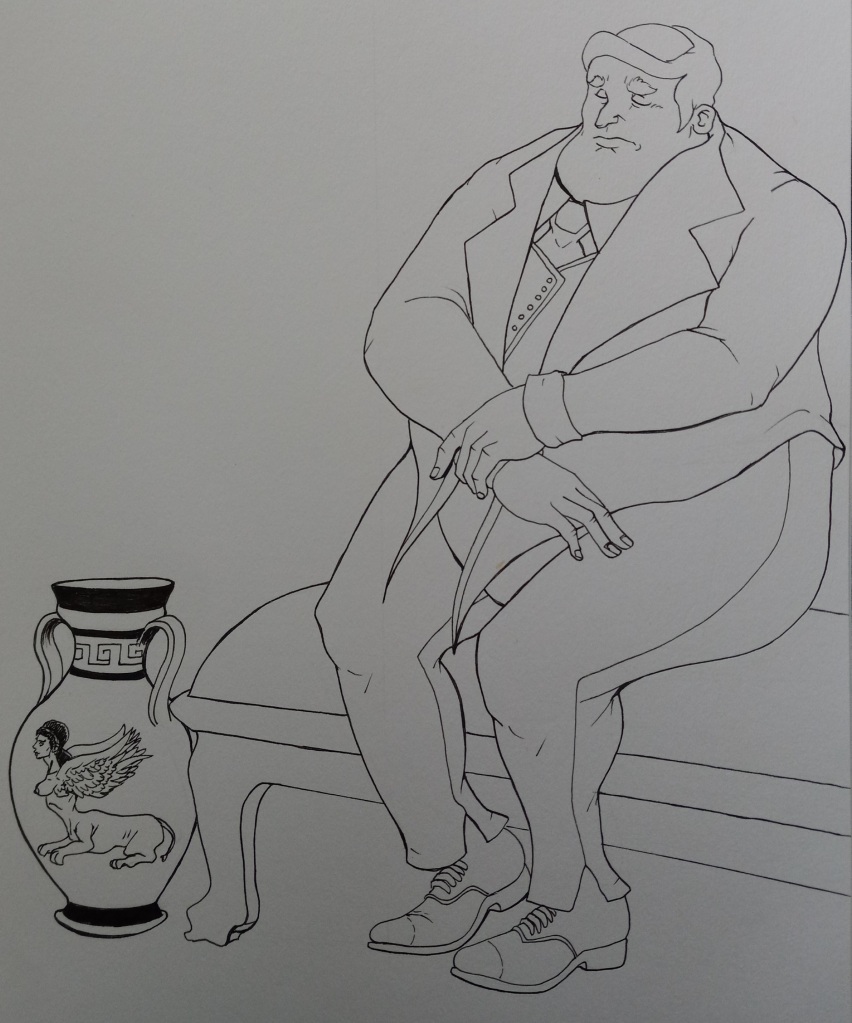
In the cool depths of night,
when in the Autumn dark
you may see a green light
roaming the toro park,
a swaying orb aglow
where the mists lead astray,
beware if you must go
along the shrine-strewn way
for she drifts with the mist,
her lantern held aloft
in her gaunt, bony fist,
her face so wan and soft.
“A man I seek,” she moans,
“a man honest and true,
to help settle my bones
beneath the predawn dew.”
If you dare to be seen
she lifts her lantern high
and in the glowing green
she nears you with her eye
and peers into your face
as into a koi pond
and should you lack the grace
of heart, love, and the bond
thereby tendered, like wealth,
she touches the hollow
of your bosom, yourself
but ghost that must follow
her glow where it leads far
from home, family, friends,
and, beneath a green star
where the village path ends,
wander forevermore
as she does, Onibi
ablaze like swamp gas for
all of eternity.


















